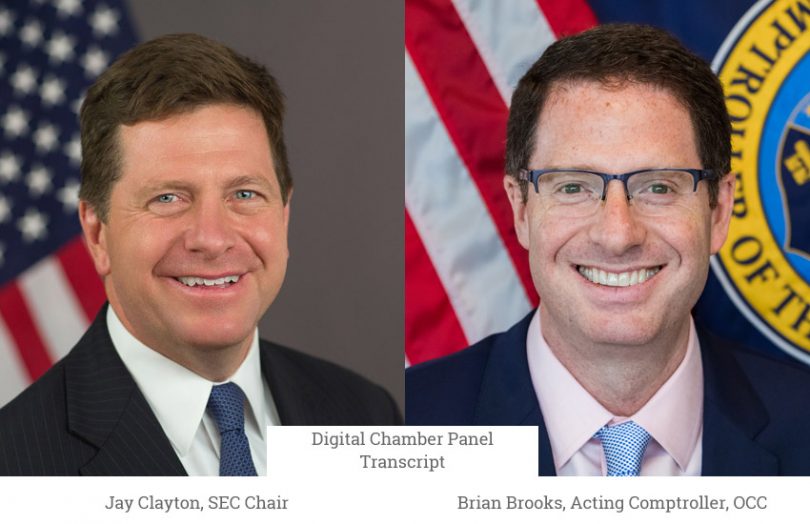Event: Two Sides of the American Coin: Innovation & Regulation of Digital Assets
Hosted by Digital Chamber, 1 October 2020
Panelists:
Jay Clayton, Chairman of the U.S. Securities and Exchange Commission (SEC)
Brian Brooks, Acting Comptroller of the Currency (OCC)
Moderator: Jackson Mueller, Director, Policy & Government Relations at Securrency
Article continues …

Want the full story? Pro subscribers get complete articles, exclusive industry analysis, and early access to legislative updates that keep you ahead of the competition. Join the professionals who are choosing deeper insights over surface level news.
Image Copyright: SEC, OCC






